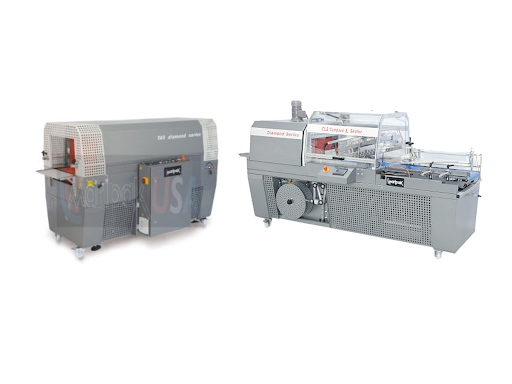Precision Immunotherapy: The Power of BsAb in Revolutionizing Cancer Treatment

In the dynamic landscape of biomedical research, the realm of tumor treatment is experiencing a transformative shift, with Bispecific Antibodies (BsAbs) emerging as a groundbreaking therapeutic cornerstone in the fight against cancer.
Bispecific antibodies, a class of antibodies adept at simultaneously binding to two distinct antigens, present a paradigm shift in cancer treatment. Specifically tailored for precision, they can engage with antigens on both the surface of cancer cells and immune cells, enabling pinpoint identification and targeted therapeutic interventions. This unique design imparts distinct therapeutic advantages, addressing challenges posed by tumor heterogeneity, a formidable obstacle for conventional treatment methods.
Tumor heterogeneity, characterized by diverse antigen structures, can render traditional treatments ineffective. The dual antigen recognition capability of bispecific antibodies overcomes this hurdle, providing a comprehensive approach to treatment and broadening its applicability. Beyond mere recognition, bispecific antibodies play a pivotal role in promoting immune cell infiltration, particularly T cells, into tumor tissues. This fosters a heightened interaction between immune cells and cancer cells, significantly enhancing treatment efficacy.
Moreover, bispecific antibodies disrupt inhibitory immune signals produced by tumors, dismantling the immunosuppressive defenses employed by cancer cells. This targeted interference facilitates immune cells in eliminating tumor cells, marking a significant stride in the battle against cancer.
Recent attention has gravitated toward bispecific fusion proteins, a subset of bispecific antibodies. Distinguished by their precise design, these fusion proteins, amalgamating the structures of two single-chain antibodies, offer multi-level antigen recognition. Notably, they afford enhanced regulation of immune cell activity, improving treatment safety by averting adverse reactions resulting from excessive immune system activation.
The versatility of bispecific fusion proteins extends beyond identification and treatment, as they also function as adept drug delivery systems. By precisely delivering drugs or therapeutic substances to the tumor cell surface, they amplify treatment effectiveness. Prominent examples include bispecific TCRs, BsAb-HSA fusion proteins, and BsAb-Toxin fusion proteins, with Human Serum Albumin (HSA) proving to be a valuable molecular carrier for drug delivery and diagnostics, augmenting pharmacokinetics.
One of the standout benefits of bispecific antibodies is their minimal impact on normal cells, a stark contrast to the collateral damage often associated with traditional radiotherapy and chemotherapy. By strategically countering tumor evasion mechanisms, such as reduced antigen expression or altered structures, bispecific antibodies elevate treatment success rates.
Despite their promise, challenges persist in bispecific antibody manufacturing, including intricate preparation, purification processes, and elevated production costs. Future endeavors must concentrate on refining production efficiency and cost reduction to democratize access to this promising treatment. The potential overactivation of the immune system, leading to adverse reactions, underscores the need for comprehensive research into the regulatory mechanisms of the immune system for minimizing treatment side effects.
As a rising luminary in cancer treatment, bispecific antibodies offer renewed optimism to patients through precise identification, immune system activation, and optimized drug delivery. The evolving landscape of technological innovations and treatment paradigms positions bispecific antibodies as a pivotal force in cancer treatment, promising more effective and safer options for patients. However, ongoing research and practical efforts are imperative to surmount challenges, ensuring the widespread adoption and enduring efficacy of this revolutionary treatment strategy.
Creative Biolabs is a leading global biologics company established in the United States. Creative Biolabs has grown into a recognized world leader in antibody (rAb) discovery, engineering, production, and analysis. Standing on the shoulder of a giant, our bispecific antibody (BsAb) team has a collective of experienced scientists committed to providing high-quality service to customers all over the world.
Creative Biolabs has been dedicated to the development of our techniques. Now, with the cutting-edge platforms and methods (quadroma development, chemical conjugation, and genetic engineering), a comprehensive list of bispecific antibody products is available to customers in academia and industry fields. According to modular architecture, Creative Biolabs is experienced in producing five major groups of bispecific molecules: bispecific IgGs, appended IgGs, BsAb fragments, bispecific fusion proteins and BsAb conjugates. In addition, our platforms make us the best choice for production of innovative customized designs. With novel strategies and proprietary Creative Discovery Platform™, Creative Biolabs can always adjust the design of the product to meet client’s requirements on format, valency, flexibility and half-life of the BsAb.
Creative Biolabs has equipped with advanced instruments, fit-for-purpose laboratories, and professional scientists to provide customized, one-stop solutions for non-IgG antibody development. We provide flexible solutions of your choice, and either stand-alone service or integrated project will be well designed to meet every specific demand.









